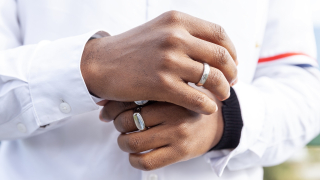Twenty-nine-year old Shaneka Thompson was the first victim of Ismaiyil Brinsley, the man alleged to have executed two NYPD officers on Dec. 20. Thompson suffered a 9-millimeter gunshot wound to the abdomen about 8 hours before Brinsley – the man she had been dating for about a year – made his way to New York. She remains in critical condition as of this writing. She is also perhaps the starkest example yet of how little Black women’s lives matter to media and the NYPD – those who say their job is to protect and serve – and their union and their supporters.
And that’s because the media, the NYPD, its union and its supporters have seized upon the deaths of officers Wenjian Liu and Rafael Ramos not as a tragedy but as an opportunity. This opportunity, evidently too good to pass up, seeks to demonize a legitimate and righteous movement against police terror the likes of which has never before been seen in this country. A movement that rightfully calls into question police policies, practices and procedures, and decries the impunity of police actions.
One would think that Thompson would receive widespread support and concern for her well-being as she could have very easily died by Brinsley’s hands. While Baltimore media did their due diligence in acknowledging her presence, The New York Times didn’t get around to telling her story until approximately two days after NYPD officers Wenjian Liu and Rafael Ramos were shot. To my knowledge, neither Baltimore Mayor Stephanie Rawlings-Blake or New York Mayor Bill de Blasio, NY Police Commissioner Bill Bratton or NY Patrolman’s Benevolent Association President Patrick Lynch have even uttered her name.
One would think that concern about Thompson’s well-being would be leading nightly newscasts since, as a survivor, she is in the best position to provide valuable insight into Brinsley’s motivations. According to the Daily Mail, Brinsley called Thompson’s mother to apologize for having shot her daughter. Thompson’s relationship with Brinsley, described as “on again-off again,” was obviously substantive and could possibly provide clues to Brinsley’s other relationships.
One would think that as a member of the US military, Thompson would be seen as a comrade-in-arms of law enforcement, a worker whose job description also entails risking her life in various situations. And one would think that as a member of the US military, acknowledgement would be made that Thompson also took an oath to protect and defend. In their rush to demonize this movement both media and New York police in have exalted a local institution – a police department – over that of the United States military. One would think that the story would begin with Thompson – because it actually does – but that actual narrative does not serve the current project to place police and any criticism of them off limits.
Whose life really matters?
According to a timeline provided by the Mail, Baltimore police began monitoring Brinsley’s actions around 6:30 am on December 20th through Thompson’s cell phone, which Brinsley stole. They ascertained he was on the way to New York but did not alert police in New York until seven hours later.
One would think that the NYPD and their counterparts in other cities would take a hard, long look at themselves and what may have gone wrong with their policing. The NYPD’s demanding of apologies and blaming the protest movement for this tragedy sounds nothing like self-reflection.
Members of the #BlackLivesMatter movement understand that nationwide protests against police murder and lack of accountability must continue while also acknowledging the loss of life of NYPD officers Liu and Ramos. The NYPD, its union and supporters, as well as the media, have shown by their actions that only police lives matter to them.
The life of Shaneka Thompson matters, even if does not serve the greater police narrative to shut down any and all criticism of police misconduct. Thompson’s life matters as part of the current search for justice and accountability; principles that even the NYPD can get behind.
At least, one would think.













